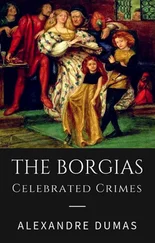‘This Lord is very splendid and magnificent,’ Machiavelli wrote in a letter signed by Soderini:
In war there is no enterprise so great that it does not appear little to him. In his pursuit of glory and lands he never rests, nor is he put off by danger or fatigue. He arrives in one place before it is known that he has left another. He is well liked by his soldiers, and he had collected the best men in Italy. These things bring him victory and make him formidable, especially when combined with una perpetua fortuna .
Machiavelli might have added how exasperating was Cesare, who, having kept him waiting for hours on end for an interview, would suddenly summon him in the middle of the night or the early hours of the morning, often not appearing when some meeting had been arranged, and, on occasion, riding away to where his army was in camp at Fermignano, a few miles south of Urbino, where he could be seen early in the morning hunting with his leopards in the surrounding hills, accompanied by ‘a host of servants, his face wrapped in gauze.’
When at Urbino, much of Cesare’s time was spent supervising the dispatch by mule train of numerous Montefeltro treasures to the fortresses at Forlì and Cesena — those costly furnishings and works of art that had ornamented the magnificent ducal palace where Lucrezia had been much honoured as a guest just five months earlier. ‘He had all Guidobaldo da Montefeltro’s furniture taken from the palace,’ a local chronicler reported, ‘so that, over the period of a month, 180 mules were employed each day; thus was an honoured family despoiled of silver and rich tapestries, and the magnificent library of rare books, which had been assembled with such loving care by Guidobaldo’s father, Duke Federigo.’ In his notebooks, Leonardo also recorded the strings of ‘mules carrying rich loads of gold and silver, many treasures and great wealth.’
Among these treasures were works of art that Isabella d’Este, who possessed by her own admission ‘an insatiable desire for antique things,’ was eager to acquire. She wrote to her brother in Rome, Cardinal Ippolito d’Este, asking him to approach Cesare with a request for two antique statues, one of a Cupid attributed by some to the ancient Greek sculptor Praxiteles, and the other ‘a little antique marble Venus,’ which she hoped Cesare might be prepared to part with since he did not ‘take much pleasure in antiquities.’
In fact, the Cupid was not an antique but a modern work carved by the Florentine sculptor Michelangelo, and Cesare could well spare it. Indeed, his agent delivered the statues to Isabella in Mantua on July 21. She had sought permission from the exiled duke, her brother-in-law, before purchasing these items, but when Guidobaldo tried to reclaim the sculptures later, she, somewhat meanly, refused to let them go.
After Cesare’s success at Urbino, the seizure of Camerino offered few problems; and the aged lord of the place, Giulio Cesare da Varano, together with his two sons, was handed over to Cesare and was later strangled in the castle of La Pergola.
In Rome the pope celebrated Cesare’s victory at Camerino in his usual exuberant manner with the customary cannonade from the ramparts of Castel Sant’Angelo and, that evening, as Burchard reported, with ‘bonfires, fireworks and a great party in the piazza of St Peter’s.’
Firmly in control of an obedient Romagna, Cesare now set about raising money to feed and equip his army, which was said to cost him more than 1,000 ducats a day. He turned to his father for assistance, and although the pope was always of a far more cautious turn of mind where money was concerned, and constantly lamenting the extravagances of his son, Cesare did not turn in vain.
Indeed, the pope resorted to all manner of expedients in order to raise the necessary amounts of cash. Large sums poured in from the imposition of fines and penalties upon Jews and from the creation of numerous offices in the papal administration that were profitably sold for as much as 700 ducats each. He adopted the questionable tactic of countermanding legal wills, appointing himself as heir and replacing the named executors with his own men; he even, so it was said, resorted to murder to help his son financially so far as he could.
Adding substantially to the papal coffers was the death on July 20, 1502, of Cardinal Gianbattista Ferrari, Alexander VI’s erstwhile datary, who had paid 22,000 ducats for his red hat in September 1500, as part of the pope’s efforts to raise funds for Cesare’s campaign against Faenza, Rimini, and Pesaro. The cardinal had fallen ill in early June, Burchard reported, and ‘declined all medical treatment, refusing stubbornly to be given enemas, to be bled, to take syrups or pills or any other medicines.’ After a few days in bed, he had been well enough to dine on ‘bread soup and a pint of excellent Corsican wine,’ but soon suffered a relapse, severe enough to be given the last rites; however, he rallied again and lasted for another month, still refusing medicines of any kind.
The morning of his death, somewhat delirious, he complained that he had been robbed of 10 ducats in a transaction relating to a petition. Two monks who were present told him ‘Most Reverend Lord, do not trouble yourself about these transactions. You must recommend yourself to Him who will deliver you from all fraud and deceit.’ He kissed the crucifix and made the sign of the cross by striking his mouth with his right hand. Shortly afterwards he yielded up his spirit.
The cardinal’s interment in Santa Maria della Febbre was not a dignified ceremony; a member of the dead man’s household hurried toward the coffin to retrieve a pair of gloves that, he claimed, belonged to him, as well as a ring that, so he maintained, was also his property. Then it was found that the lid of the coffin would not close upon the corpse, so a carpenter was called to kneel on it to force it down.
Although a rich man who was reported to have accumulated a large fortune in ducats and in gold and silver, by extremely questionable means, Gianbattista Ferrari had been notoriously parsimonious; and Burchard recorded the joke that was being told of him at that time in Rome, that, on presenting himself at the gates of heaven, St Peter had asked him for an entrance fee of 1,000 ducats. He protested that he could not possibly pay such a sum. Well, said St Peter, he would settle for 500 ducats. That, too, was quite impossible; the price was eventually dropped to one ducat, but even this was too much for the miserly cardinal. ‘If you cannot pay a single ducat,’ St Peter then exclaimed, ‘go to the Devil, and remain a pauper with him for all eternity.’
So the death of the cardinal was not widely mourned; his stinginess and disregard for the plight of the poor had earned him an evil reputation; and while his last illness seems to have been caused by a fever endemic in Rome, there were many who believed that he had been poisoned in the manner in which he himself was supposed to have arranged the deaths of several of those who crossed his path. Certainly, much of the cardinal’s fortune, which Burchard estimated at 80,000 ducats, not counting his clothes and jewels, passed into the hands of the pope, and thence into Cesare’s battle chest.
Having taken Urbino and Camerino, Cesare was now ready for the next step in his ruthless campaign. For this he needed the cooperation of Louis XII, who was, conveniently for Cesare, on his way from France in person to visit Milan, where he was expected on July 28. So, just four days after the surrender of Camerino, Cesare galloped out of his camp at Fermignano, together with three companions, ‘disguised as a Knight of St John of Jerusalem, with a cross on his coat,’ reported Burchard, and availing himself of the order’s chain-of-post horses along the road.
Читать дальше











